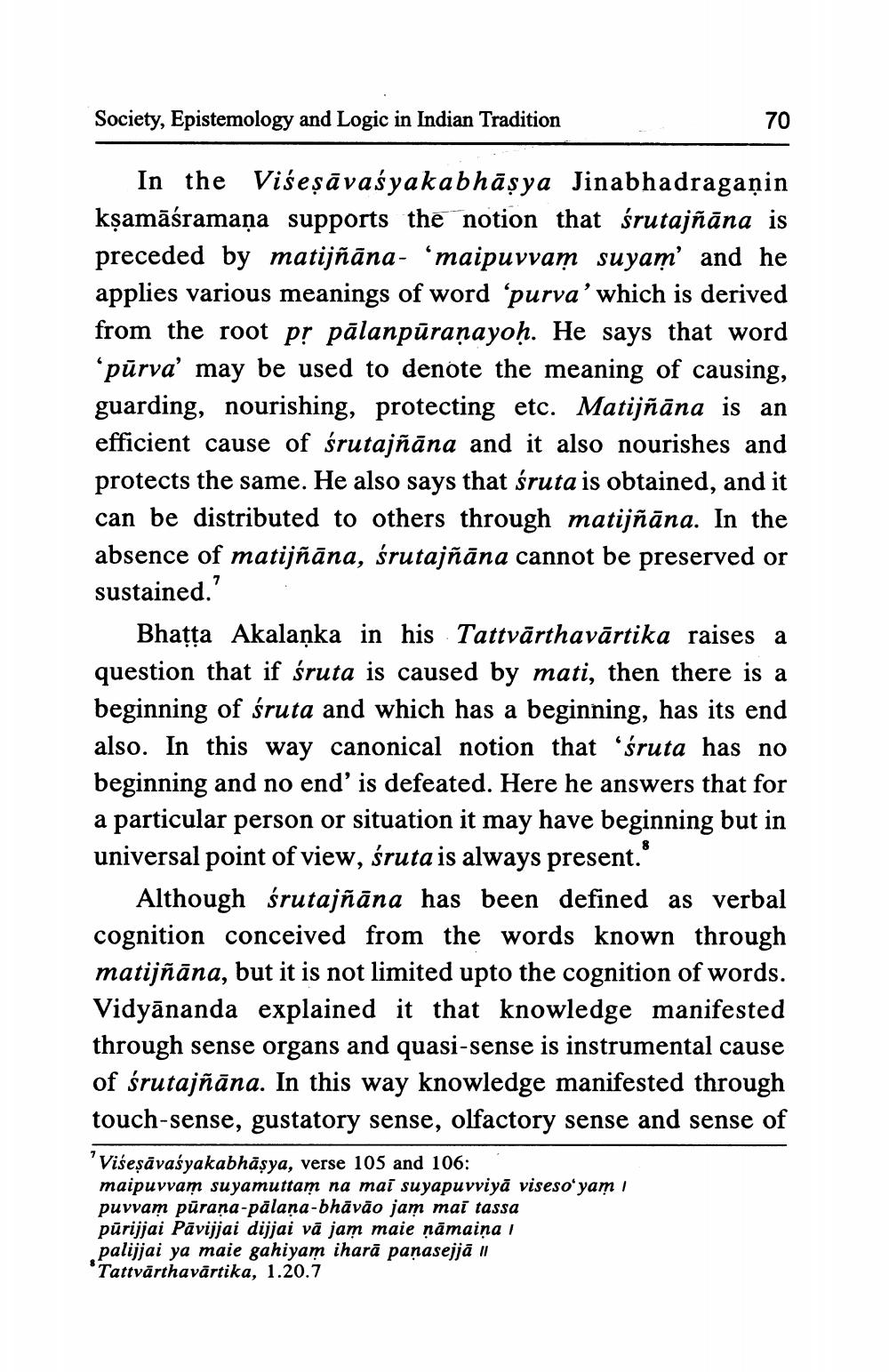________________
Society, Epistemology and Logic in Indian Tradition
In the Viseṣāvaśyakabhāṣya Jinabhadragaṇin kṣamāśramaṇa supports the notion that śrutajñāna is preceded by matijñāna- ‘maipuvvam suyam' and he applies various meanings of word 'purva' which is derived from the root pṛ pālanpūraṇayoḥ. He says that word 'pūrva' may be used to denote the meaning of causing, guarding, nourishing, protecting etc. Matijñāna is an efficient cause of śrutajñāna and it also nourishes and protects the same. He also says that śruta is obtained, and it can be distributed to others through matijñāna. In the absence of matijñāna, śrutajñāna cannot be preserved or sustained.'
70
Bhaṭṭa Akalanka in his Tattvārthavārtika raises a question that if śruta is caused by mati, then there is a beginning of śruta and which has a beginning, has its end also. In this way canonical notion that 'śruta has no beginning and no end' is defeated. Here he answers that for a particular person or situation it may have beginning but in universal point of view, śruta is always present.
8
Although śrutajñāna has been defined as verbal cognition conceived from the words known through matijñāna, but it is not limited upto the cognition of words. Vidyananda explained it that knowledge manifested through sense organs and quasi-sense is instrumental cause of śrutajñāna. In this way knowledge manifested through touch-sense, gustatory sense, olfactory sense and sense of 'Viseṣāvasyakabhāṣya, verse 105 and 106:
maipuvvam suyamuttam na maī suyapuvviyā visesoʻyam | puvvam pūraṇa-pālaṇa-bhāvão jam mai tassa pūrijjai Pāvijjai dijjai vā jam maie ṇāmaina palijjai ya maie gahiyam ihara paṇasejjā || Tattvärthavārtika, 1.20.7




